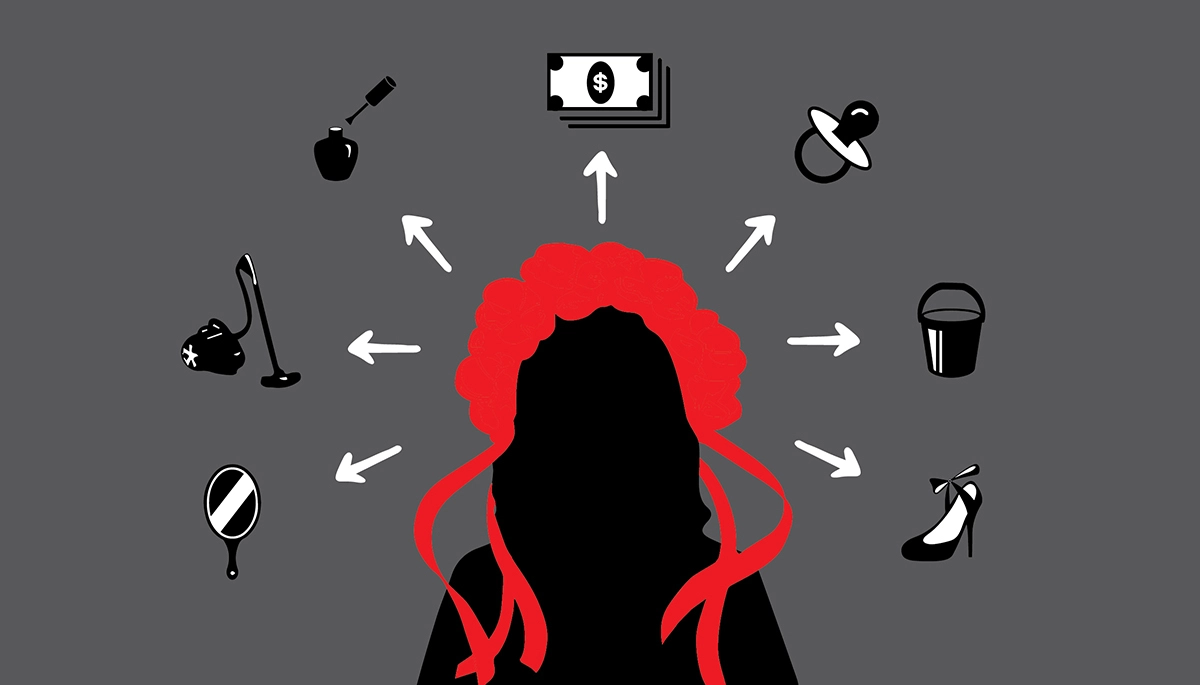
«Prostitution will save Ukraine from the default». Investigating Russian gender disinformation in social networks
«Prostitution will save Ukraine from the default». Investigating Russian gender disinformation in social networks
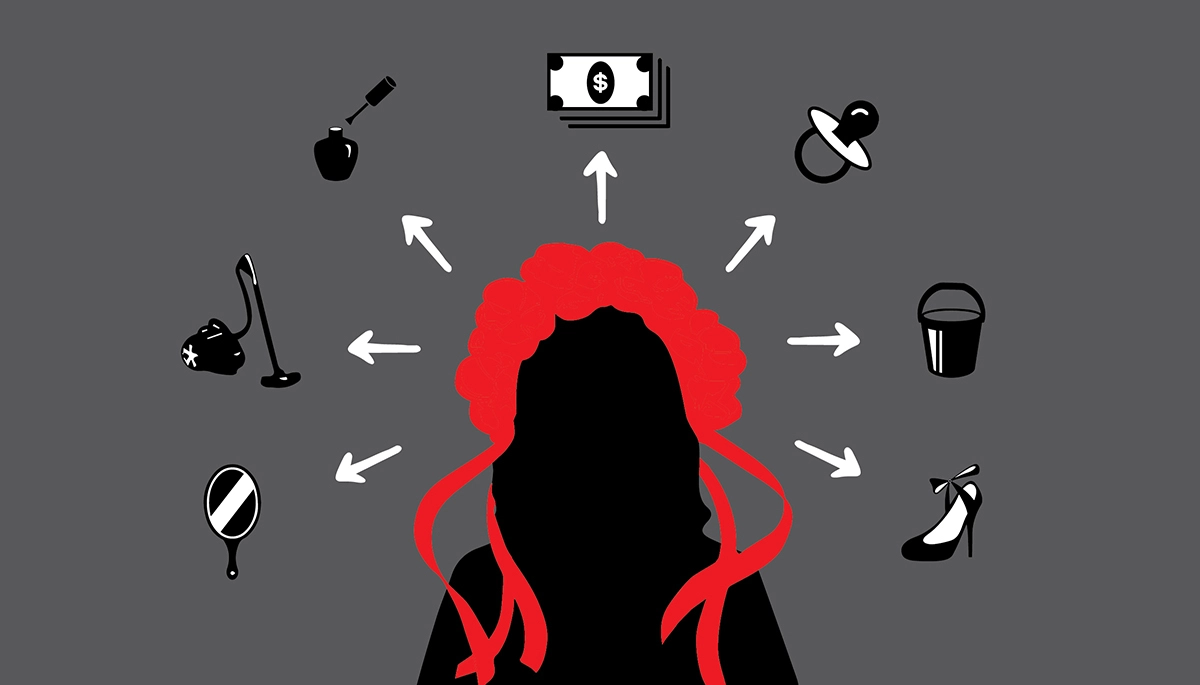

Українською текст читайте тут.
Investigating Russian disinformation in Ukrainian social networks, Detector Media observed an increase in mentions and manipulations about Ukrainian women. This issue involves female refugees forced to leave Ukraine to escape the war with Russia and women who joined the defense forces. Based on the paradigm of so-called traditional values, the Kremlin spreads gender disinformation to discredit Ukrainian women, creating the image of frivolous women who go abroad for profit, trade their bodies, and are not interested in their war-torn country’s fate. Detector Media analyzed the Ukrainian and Russian segments of social networks to find out how exactly pro-Russian users mention Ukrainian women and what messages about them are most often shared.
The research was completed by: Olha Bilousenko, Oleksiy Pivtorak, Ksenia Iliuk, Orest Slyvenko
Gender disinformation refers to misleading or inaccurate information about women that relies on misogyny and societal stereotypes which portray women as unreliable, unintelligent, emotional/evil/crazy, etc. This disinformation aims to discredit women and confuse or mislead other parties by manipulating the gender topic. The National Democratic Institute (NDI) considers gender disinformation a form of online violence against women. According to the NDI study, not all incidents of hate speech, threats, or gender-based attacks against women are cases of gender disinformation. Still, they all fall under the definition of online violence against women.
Pro-Russian users of social networks try to discredit Ukrainian women in various ways, calling them prostitutes spreading sexually-transmitted diseases, claiming that they are after sex and money, etc.
In this study, Detector Media focused on the relationship between gender disinformation and the Russian social media propaganda machine. It is the first part of the study, where we analyze binary gender disinformation, which attacks women and men. In the second part, we explore the disinformation that attacks LGBTQ+ community representatives.
Methodology
Using machine learning and elements of artificial intelligence, Detector Media analyzed more than 45,000 posts in the Ukrainian and Russian segments of Facebook, YouTube, Telegram, Instagram, and Twitter. The definition of the Ukrainian and Russian segments comprises the posts of profiles, pages, groups, and channels located in Ukraine and Russia or which have indicated Ukraine or Russia as their location.
Monitoring period: February 28th — August 28th, 2022.
Read more about the data collection and processing methodology here.
Examining posts on social networks, analysts singled out the main messages about Ukrainian women that pro-Russian users spread. All conclusions are drawn based on the read posts on social networks, and several quotes are given in the study. However, the number of quotes from pro-Russian users' posts is limited in order not to traumatize readers and not to relay the position of Russian propagandists, humiliating Ukrainian women.
Pro-Russian users of social networks are those whose pages contain posts with messages of Russian propaganda, such as those who support and justify the war in Ukraine and blame the governments of Western countries for military actions, etc. First, we will share the example of a Twitter user with the nickname "Ogurchyk / Огурчик" (@straight_pickle), who, from the first days after creating the account, spread messages with the scorn of feminism. After Russia's full-scale invasion of Ukraine, the page denied that the Russian military was committing sexual crimes in Ukraine and ridiculed those who argued otherwise. For example, on July 24th, "Ogurchyk" accused the inaction of Russian feminists who condemned the war in Ukraine.
How different are the Russian and Ukrainian social media segments regarding gender disinformation?
We can trace a biased attitude towards women in the Russian segment of social networks: whether those women are Ukrainian or Russian. Russians’ descriptions of women are filled with stereotypes. Such theses as "if you're not a housewife, you're not a woman" or "if you beat up a woman, she will calm down" are typical for the Russian segment.
Russian infospace often appeals to Ukrainian refugee women abroad and uses shortcuts similar to Russian ideology, appealing to traditional values. In the gender-based case, the opposite happens; we see the woman being called a "prostitute", "hohlushka" [хохлушка / хохлы, a derogatory calling of Ukrainians by Russians], and a "crazy feminist". According to them, Ukrainian women violate all "traditional values" and "have nothing sacred": they are only interested in sex and money.
The situation is somewhat different in the Ukrainian segment. There was no direct discrediting of women. However, we traced posts with manipulations about women's position and role in war conditions. For example, pro-Russian users often speculated about the "compulsory mobilization of women". Women of certain professions in Ukraine were indeed required to register for the military, but this is not mobilization. A woman in Ukraine can join the army only of her own will.
In addition, the Ukrainian segment contained many posts related to the rape of Ukrainian women by the Russian military. The Russian segment's posts usually justified the Russian army, but in the Ukrainian segment, it was the opposite. In general, the Ukrainian share of social networks had fewer posts that humiliated and devalued women than the Russian one. The latter contained many posts and comments that included calls for sexual violence against women or justified it, etc.
Peculiarities of gender disinformation in each social network
Most of the posts in both the Russian and Ukrainian segments of Telegram during the monitoring period were about the departure abroad and foreign life of Ukrainian women, or " hohlushki", as often called by pro-Russian users. Many Telegram authors discussed the "moral qualities" of Ukrainian women, calling them names and justifying sexual crimes. In some posts, Telegram users described in detail sexual acts with the so-called hohlushki. Victim-blaming of Ukrainian women is also widespread in this social network. It means someone tries to shift the blame for someone's crime onto the victim. Ukrainian women were accused of sexual crimes against themselves and of not saving their husbands from the war.
On the contrary, Facebook contains many thoughtful posts about the crimes the Russians are committing in Ukraine, such as about the inadmissibility of sexual crimes. Many posts on this social network, as well as on Telegram, also contained various accusations. Still, if only the Ukrainian women were accused in Telegram, Facebook posts included accusations of everyone else. For example, Europeans are not ready to provide solid jobs for female refugees from Ukraine and encourage them to engage in sex work. Similar rhetoric prevailed in Instagram posts. In this social network, many posts also related to sex work topics, such as some Ukrainian women were accused of not being able and capable of anything else, while others claimed that President Volodymyr Zelensky wanted to "sell out Ukrainian women abroad."
On Twitter, most of the publications were related to controversies regarding sexual crimes that happened in reality or were invented by Russian propagandists. Even before the invasion, agitational propaganda (agitprop) "prepared" Twitter users by accusing the Ukrainian military of sexual crimes against residents of the temporarily occupied territories of Ukraine. At the end of March 2022, after the liberation of the Kyiv region, there were more allegations of Russian sexual crimes by pro-Ukrainian users on Twitter. The pro-Russian public began to deny the facts of sexual crimes in the occupied territories as fabricated, trying to blur the accusations with claims that both sides of the conflict committed sexual crimes. During the monitoring period, Twitter posts did not contain the topics of rape and rarely spread gender stereotypes.
YouTube is a social network where videos, comments, etc., are pre-moderated. However, despite this, during the monitoring period, we still traced messages about the stereotypical role of women in society, in particular, about the refugee "hohlushki". It is noteworthy that the Russian segment of YouTube emphasized the rape of women and the characteristics of the victims. Of course, messages discredited Ukrainian women, but many theses formed a collective portrait of women, regardless of their origin. In the eyes of a pro-Russian user, the woman appeared as a convenient subject for society. A lot of content was about how Ukrainian women supposedly having fun abroad and not thinking about their homeland. Ukrainian women on Russian YouTube and other social networks were often called prostitutes. Many messages also referred to the "compulsory mobilization of women".
Key messages of gender disinformation about women in the context of the full-scale war
"Hohlushki are not people"
The users of mainly Russian segment of social networks have called women from Ukraine various kinds of offensive words. The most popular among them is "hohlushki". The pro-Russian authors of the messages called the refugees from Ukraine "lazy hohlushki", "terrible hohlushki", "beautiful hohlushki", "hohlushki-whores", "hohlushki with sawdust in their heads", "stupid hohlushki", etc. Russian propaganda needs to humiliate Ukrainian women and portray them as inferior and incapable of anything.
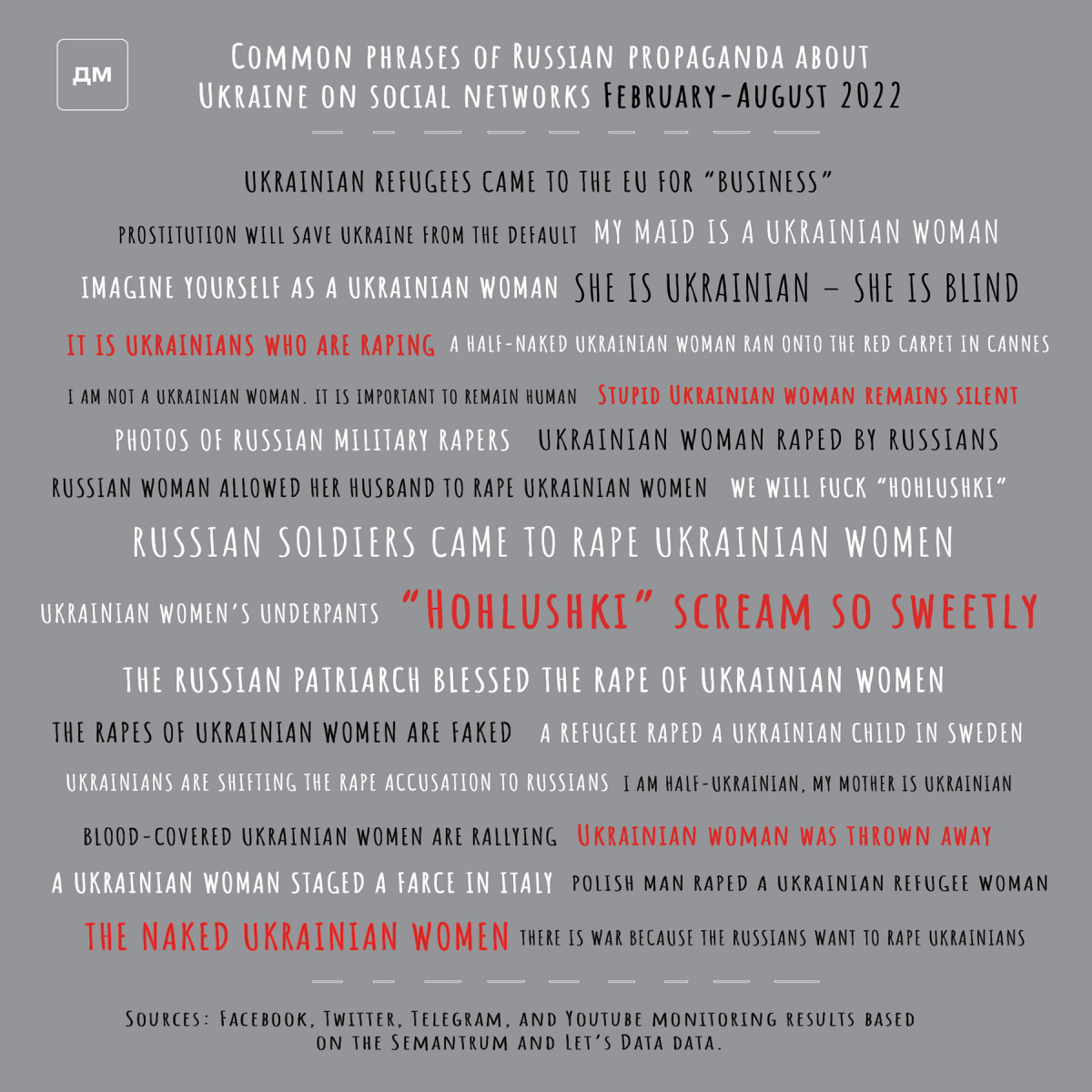
"Ukrainian women are prostitutes"
It is one of the most repeated theses of pro-Russian social network users. This statement surfaced during the monitoring of posts from both segments of social networks — Ukrainian and Russian. The reports claimed that since the beginning of the full-scale war in Ukraine, many Ukrainian women have gone abroad and engaged in sex work in foreign countries. For example, many countries, particularly the Netherlands, Romania, and others, are opening private brothels that hire Ukrainian women "for work". Such messages claimed that Ukrainian women would instead engage in sex work than wash toilets and are incapable of anything else. Moreover, some European women seem to envy them, and to "get a job in a brothel", they present themselves as Ukrainian women.
The authors of similar messages also claimed that prostitution is a profitable business, and therefore, "Zelensky and his associates do not mind selling Ukrainian women abroad." These posts stated that "prostitution will save Ukraine from the default". "The budget of Ukraine is hopelessly empty. Concerned citizens are looking for alternative ways to fill it. For example, pro-Russian users talked about a petition for the legalization of prostitution in the country, which has appeared on the Ukrainian president's website, the authors of which justify their proposal as a benefit for the budget in the form of taxes".
On the contrary, there were also reports of a different nature: the authors blamed not Ukrainian women for the situation with "widespread sex work", but Europeans, who allegedly do not offer women "normal" work and "view them as animals". Therefore, Ukrainians are forced to "offer themselves to Europeans". Some reports emphasized "bad Europe and Europeans", who mock Ukrainian women, prevent them from engaging in "serious" work offers and organize brothels.
By spreading such theses, Russian propaganda seeks to create an image of a "hopeless", "capable of anything", and "lazy" Ukrainian woman who, fleeing the war, can only engage in sex work and send "nude photos" to survive. Thus, propagandists seek to degrade Ukrainian women’s dignity and devalue their achievements, showing that Ukrainian women cannot socially fulfill themselves in any other way.
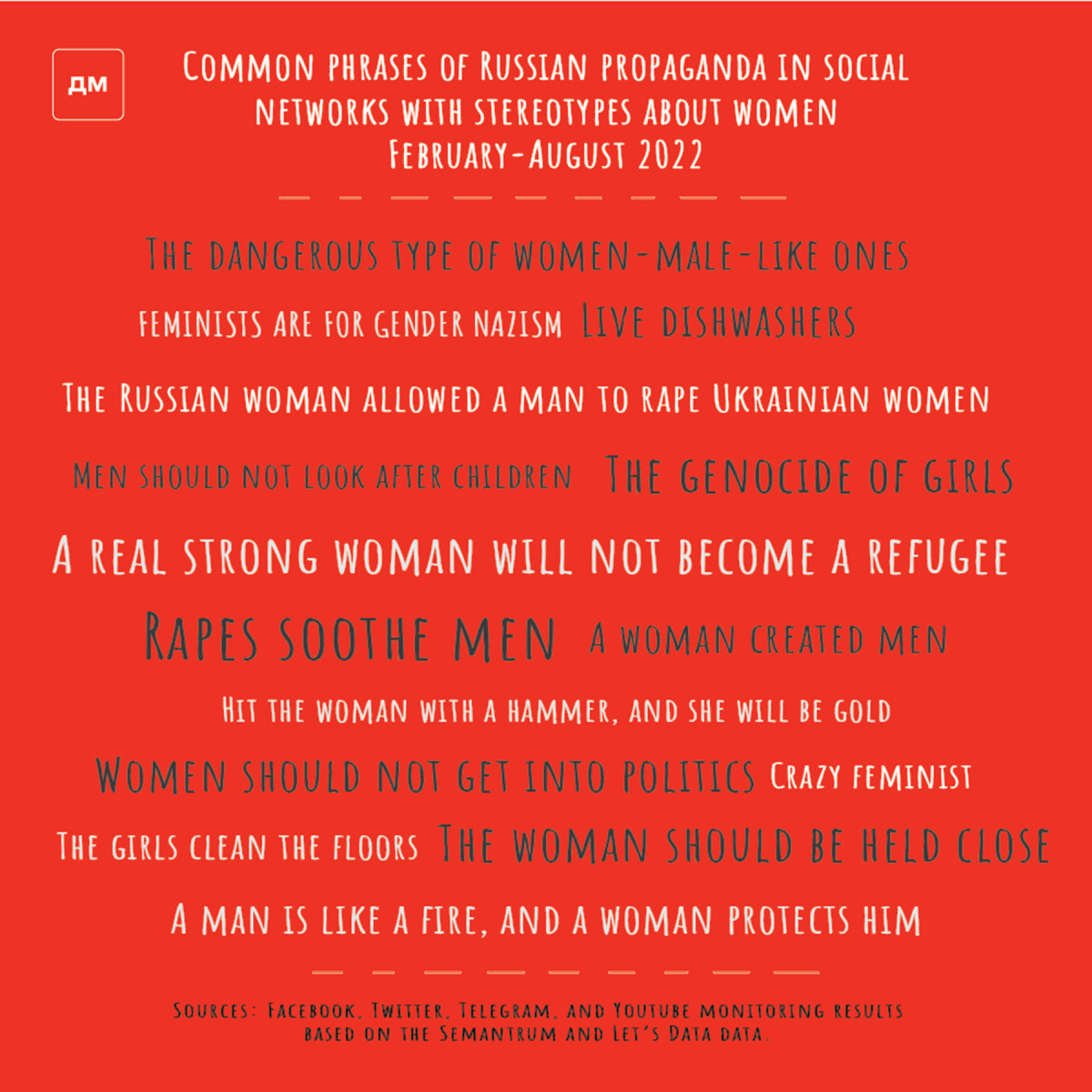
"Ukrainian women spread infectious diseases"
This thesis follows the previous one. For example, Ukrainian women are prostitutes and spread various sexually transmitted diseases in Europe and beyond. In particular, HIV/AIDS. Similar messages stated that Ukrainian women coming to EU countries infect the men and destroy families by taking men away from their wives. Such statements are necessary to humiliate and discredit Ukrainian women in the eyes of the host communities and turn those against them. Its key message is that one should not expect good things from Ukrainian women.
"It is Ukrainian women’s fault"
Many posts on the Russian segment of social networks accused Ukrainian women of going abroad, renting housing from men, and, in turn, demanding sex from them. Thus, it does not matter that they were asked to pay for services not with money but with sex. Still, according to pro-Russian social media users, Ukrainian women themselves are guilty in such situations. After all, this is what they [Ukrainian women] should have expected: these are men, and you should not expect anything else from them. According to these messages, "Men fully use them for their intended purposes and then throw them out into the street. But what did Ukrainian women want? Why haven’t they asked other women for help? Why do Ukrainian girls immediately start looking for a European sponsor, behave like cheap prostitutes, and simultaneously demand respect? Where are their brains?".
Moreover, women who went to other countries to save their lives and often their children's lives were accused of leaving instead of staying in Ukraine, not boosting the Ukrainian economy but "strolling around Europe in dresses" while men fought. Its main message was, "how can they do this when there is a war in Ukraine and people die every day."
Such messages contain elements of victim-blaming. For example, women who have suffered from domestic or sexual violence, even in peacetime, are often accused of being the ones to blame, thereby excusing the perpetrators. The described cases illustrate that the problem, which existed in peacetime and did not disappear but only intensified during war conditions. This means that no matter what happens to a woman, there will be people ready to accuse her of crimes against herself.
"Women are a trophy in war"
The behavior of the Russian military towards Ukrainian women is logical. It is one of the theses spread on social networks in light of news about the Russian military's mass rape of Ukrainian women. Similarly, this happened during all the wars, and nothing is strange or terrible about it. However, such rhetoric about this phenomenon occurred mainly in the Russian segment of social networks, but what happened in the Ukrainian one requires a little more detail.
We have identified three categories of war-related sex crime contributors. The first is pro-Russian authors. They justify, deny, or transfer responsibility for sexual crimes to Ukrainians, precisely as in the Russian segment. The second category comprises of pro-Ukrainian authors. They accuse Russians of sexual crimes and call for their accountability. The third category is neutral. These authors coolly draw attention to the fact that armed conflicts are always accompanied by rape. Thus, the war opened the audience’s eyes to the existence of sexual crimes, and some became convinced that war and sexual violence can be called femicide - the deliberate destruction of women because of their gender.
Some pro-Ukrainian and pro-Russian social media users tried to joke about sexual violence. Pro-Ukrainian authors made such jokes: "A Russian soldier raped a child. Will Shoigu invite him for dinner to the house where his grandson lives?", trying to put the readers in the place of the victim. Meanwhile, pro-Russian users joked that the Russian military can commit any crimes, including sexual ones, or made fun of rape victims: "If she had not resisted the rape, she would not have been killed." Another category of jokes is reducing accusations of sexual crimes against Russians to absurdity: "Great Russia stole our trolleybuses," Zelensky said at a press conference. I wonder if they had time to commit rape."
"The Ukrainian army is weak because even women have to be drafted"
In traditional culture, particularly Russian, it is conventional to consider women weak. With this stereotype, the Russian propaganda machine is trying to discredit the Ukrainian army. On the one hand, they claim that the losses on the Ukrainian side are so significant that even women must be recruited into the Ukrainian army. Pro-Russian users believe that women cannot be adequate military personnel. According to them, the only functions that a woman can perform in the military are attendant positions: cooking, medical treatment, etc.
On the other hand, propagandists speculate on the male reluctance to go to war by spreading such a thesis. For example, men neglect their duty, and the Ukrainian authorities have no choice but to mobilize women. These reports claim that "There are not enough local fighters for the entire front, and many mercenaries have either been destroyed or have fled the country. That is why the time of Ukrainian women and new tales of "peaceful Ukrainian women raped by evil Russians" has come.
"Ukrainian women oppose the female mobilization"
This thesis can be traced to many posts of Ukrainian and Russian social network users. In general, the topic of women's mobilization is very emotional: Russia has repeatedly speculated about it, claiming that women in Ukraine will be recruited into the army because there are no men left to fight. Such posts also mention that the Ukrainian authorities want to mobilize women to reduce Ukraine's population. Throughout the research, DM’s analysts found messages that women in Ukraine will be mobilized forcibly, which is not valid. Women of certain professions must register for the military, which is not the same as mobilization for the army, which according to the law, is exclusively voluntary for women. Other theses stated that Ukrainian women had to flee abroad not to be mobilized. However, women fled Ukraine, escaping not from the military enforcement agencies but the occupation and Russian bombs and rockets launched on Ukrainian cities and villages.
Some posts stated that Volodymyr Zelensky was preparing reserves for the Ukrainian army, so the enemies should be wary because even retired women would be recruited into the army ranks. In separate messages, the president was also accused of wanting to create a so-called Israeli conscription system in Ukraine, which has not been discussed in Ukraine yet. Spreading the thesis that women in Ukraine will be mobilized and can be prosecuted for their refusal, Russia seeks to create the appearance that the Ukrainian army is suffering terrible losses. They state there are not enough people, so it is necessary to draft other population groups. However, as of today, tens of thousands of women serve in the ranks of the Ukrainian army, who joined there voluntarily, and, like men, defend the state with weapons in their hands.
In December 2021, before the full-scale invasion of Russia into Ukraine, 57,000 (almost 22%) of the entire army personnel were women. About 32,000 have combat specialties, such as tankers, gunners, snipers, etc.
"Ukrainian feminists refuse to fight"
There were also reports that Ukrainian feminists - fighters for equal rights for men and women - refuse to go to war. For example, feminists are only good at constantly shouting about their rights, proving that they are being violated, and striving for equality. However, in the imagination of the propagandists, when it comes down to the country's defense, they are not ready to defend it with weapons in their hands.
Many women are currently serving in the Ukrainian army, and among them, of course, there are feminists. Moreover, in the war conditions, many new responsibilities fell on women, particularly the same feminists. They had to care for families in new conditions, take children abroad to save their lives, etc. Pro-Russian users stated, "Everyone already understands that the unfortunate 16% of women in the Armed Forces should not be proud until 50% representation of women in the army, as the feminists wanted. Although no, women are not capable of fighting on an equal footing with men".
By spreading such a message, propaganda creates the appearance that people who fight for equal rights for men and women do not want them. Still, on the contrary, they want to have privileges, such as the opportunity to not serve in the army, etc. However, the fact that women are not ready to immediately join the ranks of the army proves the opposite and is a consequence of the fact that women were not considered equal to men in peacetime. The infrastructure of the army was not adjusted to the needs of women and they were not always willingly admitted to military service, etc. Moreover, before 2016, women in the Ukrainian army could not hold combat positions: women could be snipers or gunners, but in documents, they were listed as laundresses, cooks, or sewists.
"Ukrainian women must save their husbands"
Some posts on the Russian segment’s social networks stated that Ukrainian women should not go abroad to escape the war but, on the contrary, stay to save their husbands from mobilization and war. Some posts even mentioned that women should take revenge for the death of their husbands. However, the authors of such messages do not specify from whom men should be saved by women and whom to avenge their death. After all, the fact that Ukrainian men are forced to fight and die due to hostilities is solely Russia's fault.
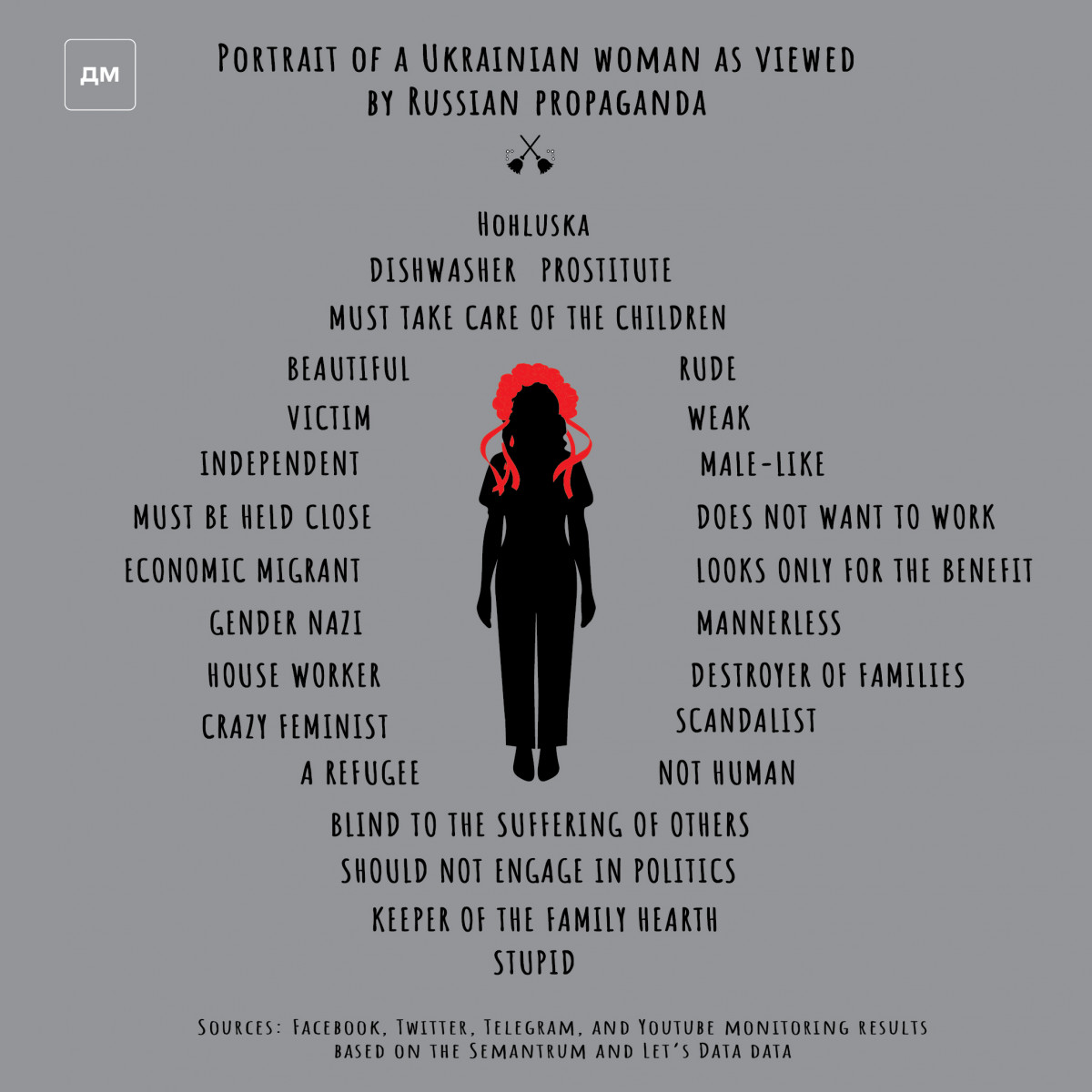
Conclusions
By spreading gender disinformation, Russian propaganda speculates on sensitive and often stigmatized topics and issues to discredit Ukraine and Ukrainians. For example, it discusses violence against women, sex work, etc. All these issues were stigmatized even in peacetime, such as when women were often accused of violence against themselves, courts rarely brought perpetrators to justice, and the topic of sex work legalizations caused a lot of noise. Therefore, the issue of women's rights, like any other topic, such as food, energy, financial, etc., security that existed in peacetime, became more acute in wartime.
Social scientists have repeatedly described the stereotypical attitude to the roles of women and men during armed conflicts. Men are expected to fight, while women have to flee from war. After the war, women are portrayed as powerless victims. It is partly true because, according to UN data for 2019, women made up more than half of the 80 million refugees and internally displaced people. Among the rest of these 80 million, 40% were children. However, women who find themselves abroad or in refugee shelters do not have absolute protection and the opportunity to enjoy the host country's hospitality. In a new place, women face a drop in income and the need to fully provide for themselves and their families, which does not fit into the vision of a woman as a passive participant in armed conflicts.
Many reports of Russian propagandists focused on assessing Ukrainian women’s appearances. Thus, when speaking or writing about a woman, regardless of the circumstances in which she is mentioned, in Ukraine’s case - mainly war and refugee experience, the first attention is paid to her physical appearance. In many cases, a woman was considered exclusively a commodity or a person who solely served a man. By this, we mean numerous posts related to sex work or women's services. The reports' authors did not pay attention to women's education, abilities, or work experience. Still, they claimed that Ukrainian women could find themselves in EU countries exclusively as sex workers.
Moreover, this thesis is confirmed by statements about women’s inability and contempt in the context of military service. For example, if women are mobilized to the Ukrainian army, there is no one to fight for Ukraine, so the military with women will be incompetent and weak. All these theses are a manifestation of a prejudiced and stereotypical attitude towards women, which only deepened in the conditions of a real full-scale war with Russia when women had to face new challenges: save themselves and their children by going abroad; go to the army to defending the country; look for a job in a new place, etc.
Russian propaganda identifies such exacerbations and makes efforts to turn them into deep rifts in democratic societies. It tries to set up Ukrainian women who left abroad against those who stayed in Ukraine, discredit Ukrainian refugee women in the eyes of citizens of the host countries, normalize the sexual crimes of Russians, and discredit Ukraine's efforts on the way to gender equality, as an important condition for democratic development.
It may seem that phrases like "a woman's place is in the kitchen" or "hitting means loving" are just an echo of the old social order and have nothing to do with the Kremlin's propaganda machine. However, this is not the case. If we look at Russian propaganda comprehensively, we see that disinformation that exploits gender and sexuality is the cornerstone of a "Russian world" (Russkiy mir). Russian politicians and propagandists claim that the desired state of affairs is sacred for "traditional values" supporters. Therefore, it needs protection and preservation. However, studies show that by doing this, Russia seeks to achieve its geopolitical goals, fueling the confrontation between the "collective West" and Russia. Thus, it systematically discredits the democratic system and gladly offers an alternative to the so-called "decaying West" in the form of "traditional values" that accompany the "Russkiy mir".
Visualizations and key picture: Natalia Lobach











